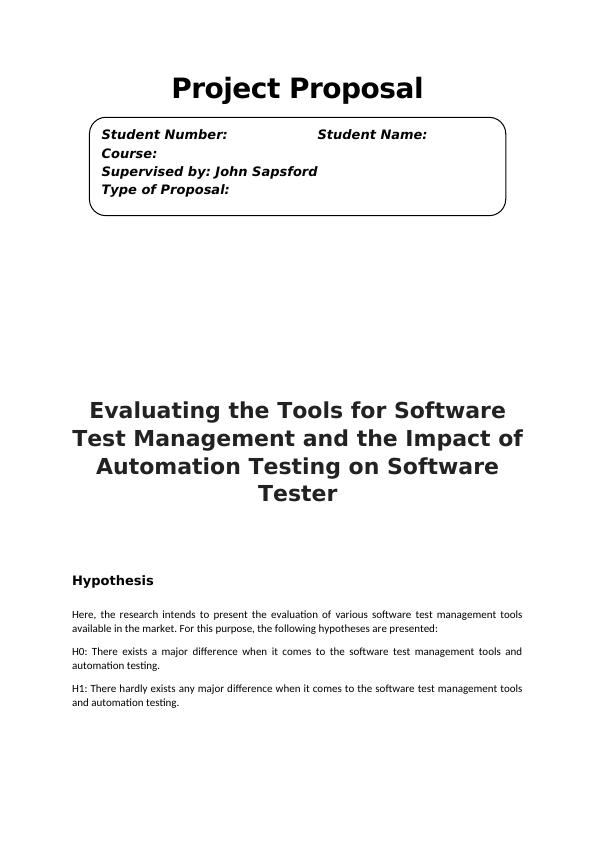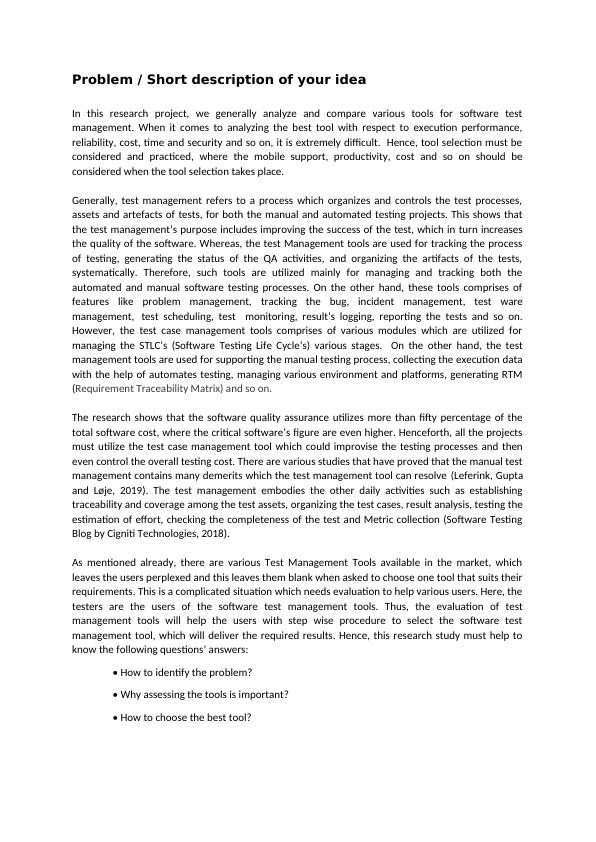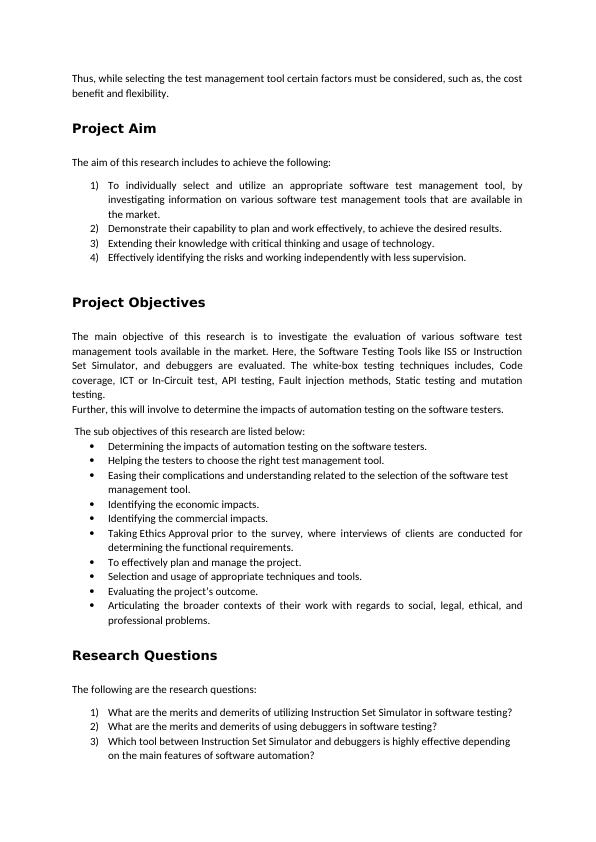Evaluating Software Test Management Tools and Impact of Automation Testing
Research and compare automated software testing tools for a computer science project.
6 Pages2432 Words285 Views
Added on 2023-04-21
About This Document
This research study evaluates various software test management tools and their impact on software testers. It aims to help users choose the right tool and understand the benefits and drawbacks of different tools. The research also explores the economic and commercial impacts of test management tools and emphasizes the importance of selecting the best tool for improved productivity and product quality.
Evaluating Software Test Management Tools and Impact of Automation Testing
Research and compare automated software testing tools for a computer science project.
Added on 2023-04-21
ShareRelated Documents
End of preview
Want to access all the pages? Upload your documents or become a member.
Research on Improving Test Automation
|7
|1811
|450
Keyword-Driven Testing: Report
|5
|1017
|104
Software Quality and Testing - Assignment
|13
|3906
|136
Software Testing: A Literature Review
|9
|2851
|291
Research Topic: Improving test automation using algorithms.
|2
|409
|395
ICT TESTING 01 -- Overview
|8
|2322
|489



